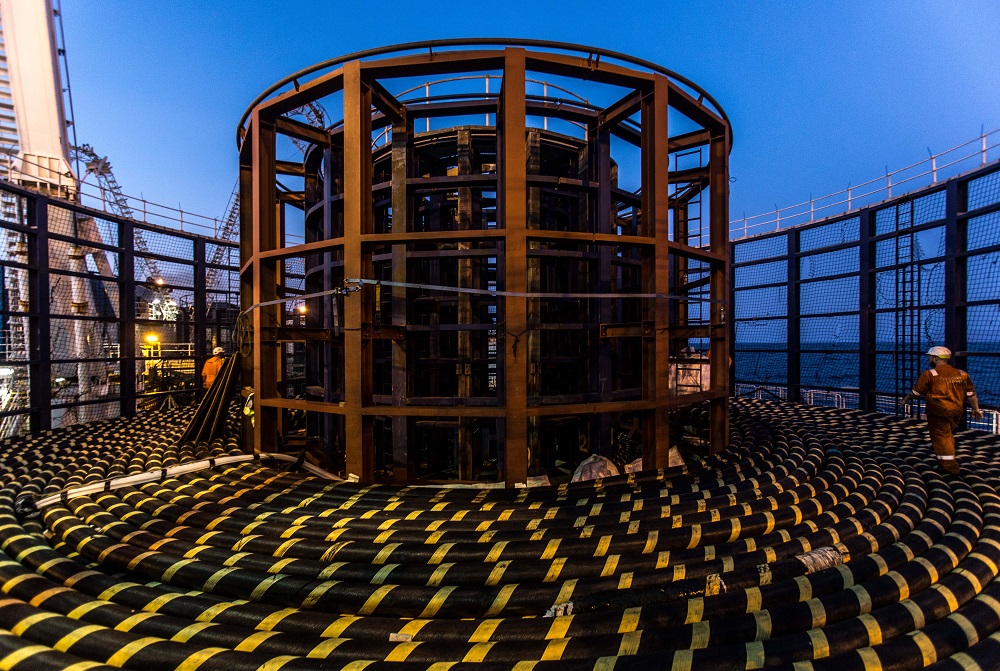Greece’s Independent Power Transmission Operator (Admie), the project promoter for the Great Sea Interconnector, has suspended payments to French company Nexans responsible for manufacturing and installing the submarine cable connecting Greece and Cyprus, it emerged on Thursday.
The decision was taken due to the uncertainty looming over the project, mainly caused by geopolitical factors – Turkish ships in the area disrupting seabed surveys for the interconnector cable in international waters.
The suspended payment concerns €70 million in pending instalments. Reports said the suspension was made in concert with Nexans, so as not impact progress on the project and avoid liability for Admie.
Meantime media are reporting that following the temporary suspension of payments to Nexans, the buoy-laying vessel Ievoli Relume has departed the port of Heraclion, Crete, and is headed to the port of Messina in Italy.
Depth surveys in international waters in the Aegean were put on hold last July after an incident lasting 40 hours when a number of Turkish warships interfered with the vessel.
Media outlets in Greece suggested Athens has adopted a wait-and-see approach, unsure of ironclad support from the French government for the project.
In the event that Nexans decides to trigger a compensation clause – should the project stall – Admie would have to reimburse the European Union for the €160 million already disbursed.
In January 2022, the European Commission had approved €657 million under the Connecting Europe Facility (CEF) for the interconnector.
Meanwhile President Nikos Christodoulides will be in Athens on Saturday in view of the enlarged meeting on the Cyprus problem, set to take place on March 17 and 18 in Geneva.
While in Athens, Christodoulides will be meeting with Greek Prime Minister Kyriakos Mitsotakis. The interconnector will be among the issues discussed.
The Great Sea Interconnector is billed as aiming to end Cyprus’ energy isolation. The project – the Crete to Cyprus segment of the cable – has been costed at around €1.9 billion.
The government here has been mulling whether Cyprus as a state should directly invest in the project.







Click here to change your cookie preferences